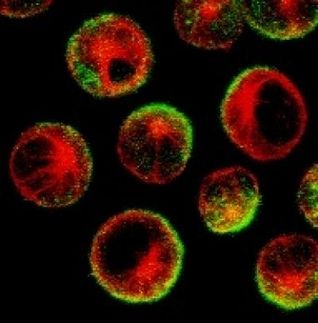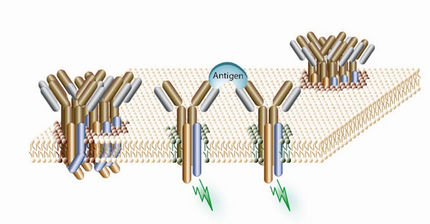Challenges and Opportunities in the Global Protein Therapeutics Market
Advertisement
The global protein therapeutics market was valued at US $57 billion in 2005 according to Arrowhead Publishers' new report The Global Protein Therapeutics Market - Market Dynamics and Pipeline Analysis. biotechnology has made notable inroads in the field of protein therapeutics, resulting in some of the key products presently available in the category. Recombinant proteins are potentially advantageous in terms of higher efficacy and fewer side effects than other pharmaceutical products, as they can be more specifically targeted to the cause of the disease, rather than the treatment of its symptoms.
In 2005, the antibodies market was valued at an estimated US $13.6 billion, accounting for over 24 percent of the total biotech protein therapeutics market. Cancer is the fastest-growing therapeutic area for MAbs. The segment is boosted by the fact that 50 percent of all drug targets are cell-surface proteins, with most cancer targets also being proteins.
After tremendous growth during the first few years of the new millenium, the erythropoietin market is beginning to cool down. Two out of the four key erythropoietin products have experienced a decline in revenue in 2005. The older generation epoetin alfa products Procrit/Exprex and Epogen are losing market ground to Aranesp, the relatively new darbepoetin alfa product from Amgen.
After a disappointing 2004, revenues from sales of alpha interferons increased by 18 percent in 2005. This was due to increased sales of both Pegasys as well as PEG-Intron. The sudden increase in PEG-Intron revenues was due to the recent approval of Rebetron (ribavirin + Intron) in Japan.
The insulin market has grown at a steady double-digit pace in recent years, boosted by the wider use of insulin in late stage Type 2 diabetes. Additionally, the use of insulin analogs has increased (due to their suitability for variable and flexible dosing), as has the use of more convenient delivery technologies, such as pre-filled pens. Such devices are more expensive than traditional syringes, which has pushed up the value of the market.
Medical and technological advances will continue to stimulate growth in the market for colony stimulating factors. Drivers of growth will outweigh its restraints, although the increased competition will continue to push smaller players out of the market. Emerging CSF therapies will enter the equation only in the long term, by which time Amgen's dominance will be entrenched.
Key restraints in the protein therapeutics market include: cost of production, treatment regimen compliance (given the reliance on injectable drug delivery for the administration of protein molecules), immunogenicity and the difficulties in securing reimbursement for such costly and long-term treatments of chronic diseases.
The discovery of new protein therapeutics will be facilitated by the development of genetics and related disciplines, which will result in an increasing number of protein-based drugs on the market. Competition will continue to intensify in the coming years, especially in key therapeutic areas, such as cancer and autoimmune diseases. The trend will be particularly prominent in the areas in which protein therapy is the only viable treatment. Research efforts in this field are numerous, given the diversity of sources for therapeutic proteins (including recombinant DNA), as well as their ability to target interactions inaccessible to small molecules.
Other news from the department business & finance
Most read news
More news from our other portals
See the theme worlds for related content
Topic world Antibodies
Antibodies are specialized molecules of our immune system that can specifically recognize and neutralize pathogens or foreign substances. Antibody research in biotech and pharma has recognized this natural defense potential and is working intensively to make it therapeutically useful. From monoclonal antibodies used against cancer or autoimmune diseases to antibody-drug conjugates that specifically transport drugs to disease cells - the possibilities are enormous

Topic world Antibodies
Antibodies are specialized molecules of our immune system that can specifically recognize and neutralize pathogens or foreign substances. Antibody research in biotech and pharma has recognized this natural defense potential and is working intensively to make it therapeutically useful. From monoclonal antibodies used against cancer or autoimmune diseases to antibody-drug conjugates that specifically transport drugs to disease cells - the possibilities are enormous




















































